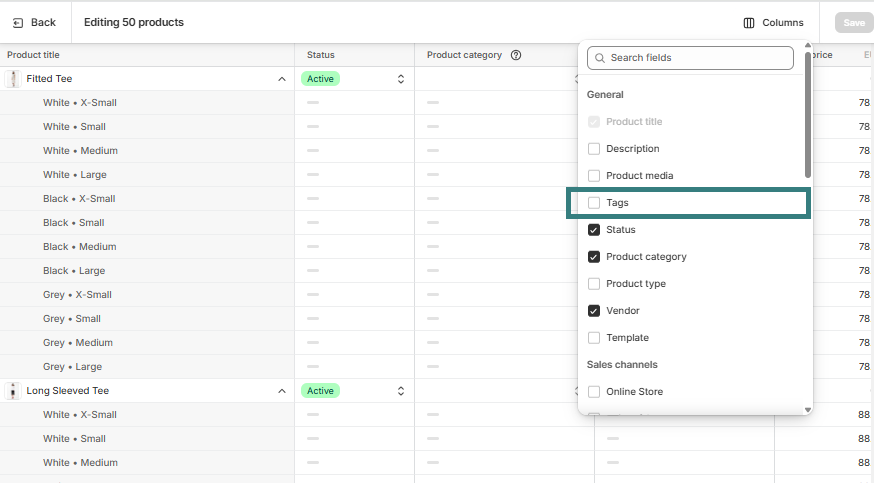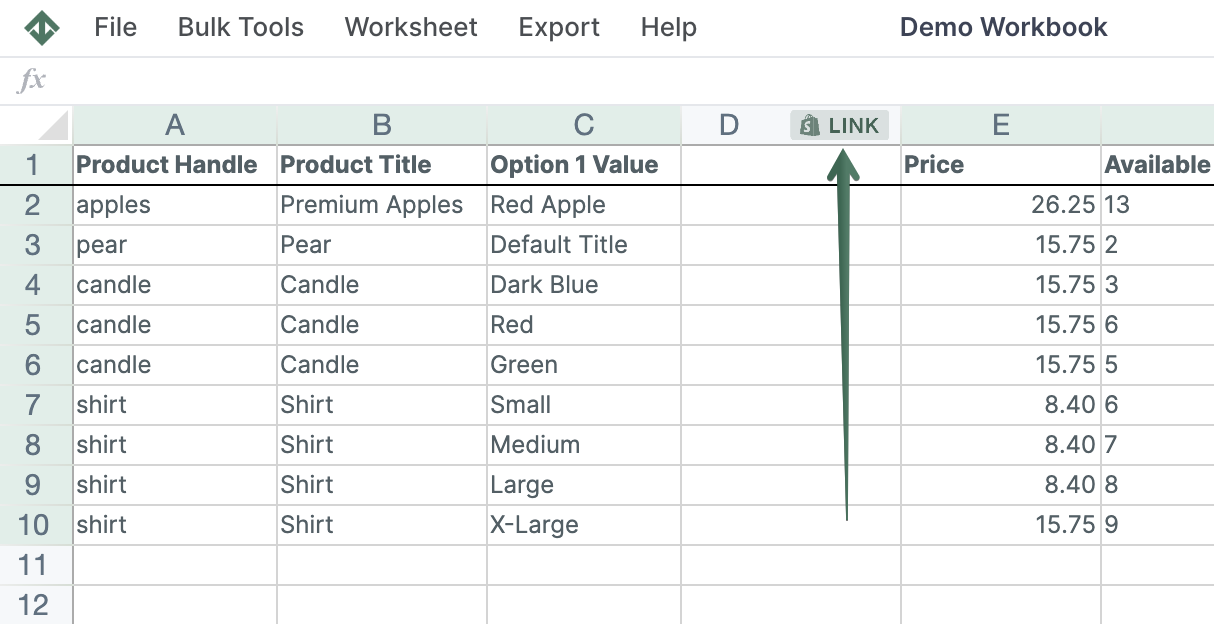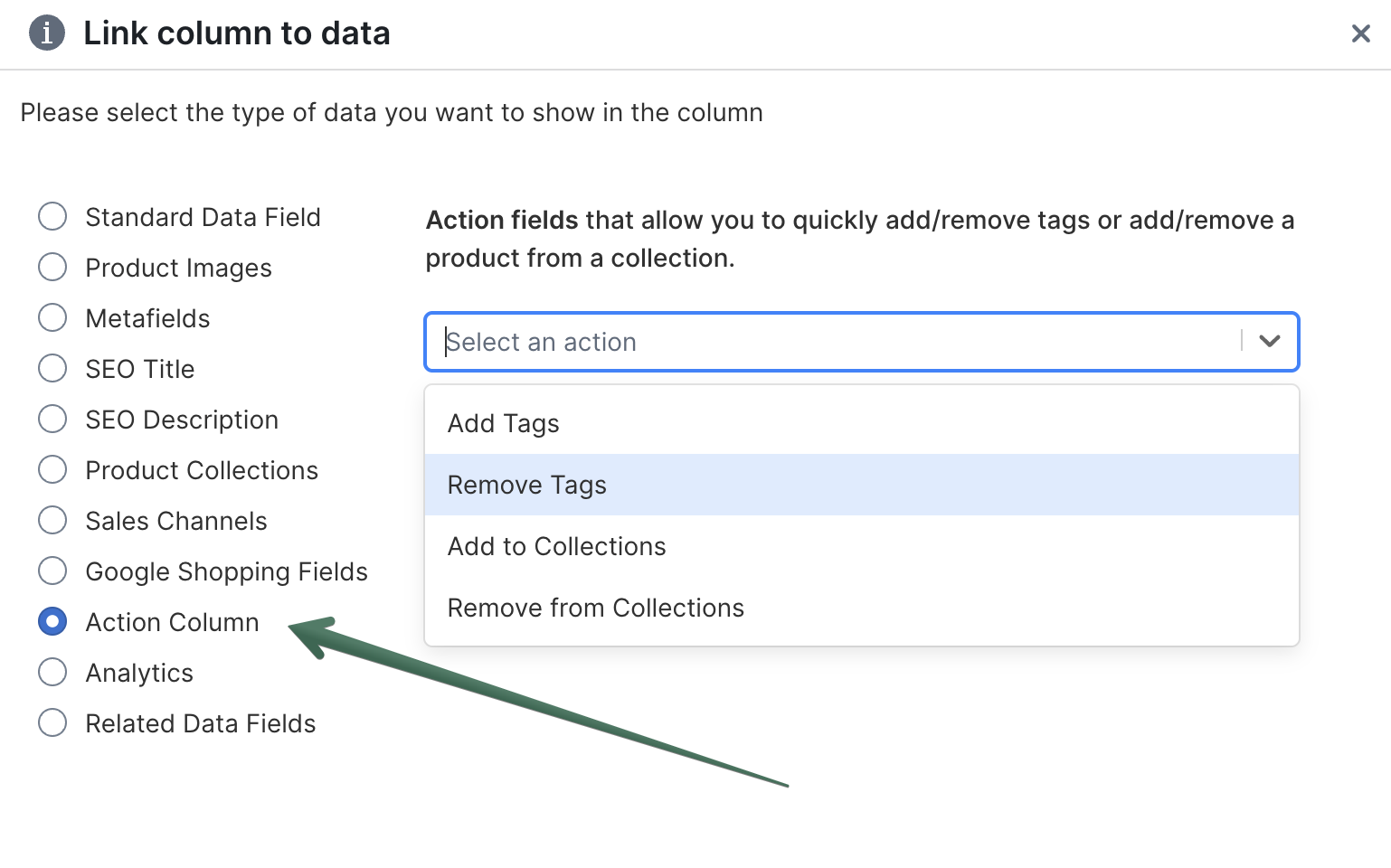Bulk tag management in Shopify is essential for efficiently organizing large product catalogs and updating multiple items simultaneously, especially when running seasonal sales or managing inventory across different categories. Whether adding promotional tags like “Summer Sale” to hundreds of products or removing outdated tags from last season’s inventory, doing it in bulk saves significant time compared to updating tags individually.
You can edit Shopify product tags from the Shopify admin. The edits won’t be in bulk for all products, but at least you will have all products in one view and won’t have to load products one by one.
Here’s how to do it:

Mixtable’s spreadsheet interface makes bulk editing tags in your Shopify store trivial. Here’s how:



Bulk editing tags is fast and convenient by directly modifying cells that display a product, order, or customer’s tags. But if you simply need to add a tag, the fastest way is with the Bulk Add Tags feature. This feature is only available for worksheets that sync product, order, and customer information (as only this data in Shopify has tags). You’ll also need to have the Tags field mapped to a column.
You activate the Bulk Add Tags feature by clicking its toolbar button. In the dialog that opens, you’ll see a few inputs:
If you need to delete tags in Shopify, the fastest way is with the Bulk Remove Tags feature. This feature is only available for worksheets that sync product, order, and customer information (as only this data in Shopify has tags). You’ll also need to have the Tags field mapped to a column.
You activate the Bulk Remove Tags feature by clicking its toolbar button. In the dialog that opens, you’ll see a few inputs:
Add the Action Columns spreadsheet functionality to an existing product worksheet to edit Shopify tags in bulk.
Note: The worksheet needs to show product information. You can create one using our Basic Product Info template, or add a Products (no variants) worksheet to an existing workbook.
To load new Shopify data, start by selecting an empty column — any column with a non-green header (green headers mean the column is already linked to Shopify data). Then, click the ⚡️ button in the column header to open the selection window to choose the data you want to pull in.

From the Shopify Sync Settings window, choose Action Columns.

You can quickly add or remove tags once you link the Add Tags and/or Remove Tags columns to your products' spreadsheet. Here's how:
Note: If you have rules for automated collections based on tags, the new tags will add products to automated collections, and correspondingly, the removed tags will remove them from the automated collections.
Find more about Action Columns functionality here.
Here are some common examples of how store owners use tags in Shopify:
Product tags are essential for organizing your inventory and improving the customer’s shopping experience.
Pro tip: Use the Product spreadsheet template to manage product tags in bulk with Mixtable.
Categorization and Filtering:
red, cotton, large, waterproofbohemian, minimalist, holiday-collection, summer-essentialsnew-arrival, best-seller, on-sale, out-of-stockInternal Operations:
fragile (to alert fulfillment staff to handle with care)discontinued (to easily find products that need to be hidden from the store)supplier:company123 (to filter products by a specific vendor)You can set up automated collections to automatically group products that share a specific tag for a better user experience and navigation.
For example: A collection called “Summer Dresses” could automatically include all products tagged with dress and summer.
You can do that from Shopify admin > Products > Collections page
Customer tags are used to segment your customer base for marketing and support purposes.
Pro tip: Use the Customer spreadsheet template to manage customer tags in bulk with Mixtable.
Customer Segmentation:
VIP, high-value-customer, first-time-buyernewsletter-subscriber, abandoned-cart, brand-advocatewholesale, distributor, local-pickupBy tagging customers, you can create targeted email campaigns or special offers.
For example: You could send a personalized email with a special discount to all customers tagged VIP.
Tag customers for internal operations and support:
Tags like issue-reported, refund-requested, or review-needed can help your support team quickly identify and prioritize customer inquiries.
Order tags help in managing and prioritizing the order fulfillment process.
Pro tip: Use the Orders spreadsheet template to manage customer tags in bulk with Mixtable.
Fulfillment and Shipping:
express-shipping, local-pickup, internationalback-ordered, delayed, partial-fulfillmentgift-wrap, special-instructionsInternal Status:
high-risk (to flag orders for manual review before fulfillment)manual-payment-capture (for orders that require manual payment processing)fulfilled-by-warehouse-a (to manage orders across different fulfillment locations)You can use the Shopify Flow tool to add tags to orders based on specific conditions automatically.
For example: An order from a customer tagged VIP could automatically get the priority tag.
gardening-tips, new-recipes, or product-reviews.pending-approval or custom-pricing can help manage and track draft orders before they are finalized.restock or damaged.You're ready!
Mixtable is an online spreadsheet designed to sync data with Shopify. It looks, feels, and behaves like Excel (including formulas), but runs in your browser. With Mixtable you can:
Best of all, you can sync changes back to Shopify with a single click. Find out more about the Mixtable suite of products here.